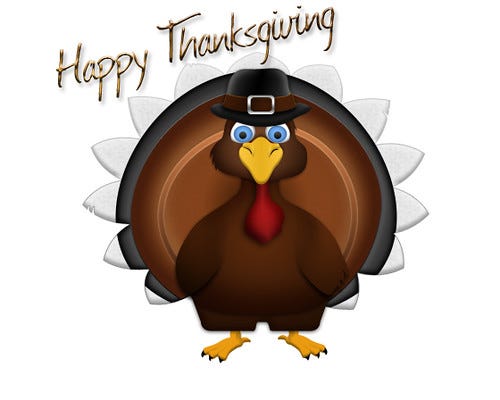Gratitude is Good. Acceptance and Empathy are Better.
Gratitude shouldn't come at the expense of other emotions, and we should work to understand other people's feelings and perspectives

When I was a kid, my annual tradition before the first day of school was confiding to my dad that I wasn’t sure I was smart enough for the next grade. My dad’s primary method of reassurance was reminding me, in his endearing, self-deprecating way, that even he had passed that grade once upon a time. As I got older, I tried to suppress or eliminate fear. I’d sort of pretend it wasn’t there. That was my coping mechanism—to ignore it or pretend it wasn’t there. I’d do the same thing with sadness or other emotions.
Looking back, I do not think these were the smartest ways to deal with my emotions. I’ve learned that it’s better to sit with them and understand them, to interrogate them and try to use them to my benefit. All emotions are essentially biochemical reactions in our bodies. If we can develop the ability to observe them in a detached manner, the better we can determine what causes it, how we can manage it, and how we can use it to become more at peace with ourselves. The capacity to identify feelings and emotions and contemplate them before they influence actions is a worthwhile goal.
There’s a meditation practice I do from time to time called “Stepping Into Fear.” I sit quietly and intentionally dredge up something that I’m afraid of. The intention is becoming familiar with the physical and psychological sensations that are present when I’m afraid in a controlled setting. Then, when I feel afraid out in the real world, I can say to myself, “Ah, fear, my old friend.” I can see fear as an entity unto itself; part of me but also separate. In a nutshell, I try to accept the emotions, good and bad, rather than let them dominate me. It’s not something I expect to ever master and will be a lifelong endeavor, but the better I get at it, the better I feel.
Which brings me to Thanksgiving, a time where we are all encouraged to be “grateful” and express gratitude for what we have. Gratitude is a feeling we are expected to cultivate, and gratitude is important. Through self-reflection and sober analysis of our circumstances in life, developing an awareness of what to be thankful for contributes to our wellbeing.
However, there are pitfalls to forcing gratitude—especially on others. I too often see gratitude weaponized as a means to shame or pacify people. Professional athletes should stop using their platforms to speak out against social injustice and just be "grateful" they get a large paycheck to play sports. Workers should stop pushing management for better working conditions and pay because they should be “grateful” they have a job at all. Everyone in America should be “grateful” to live in this country, even though this country is a vastly different environment for different people.
Weaponized gratitude is the offspring of a lack of empathy and misunderstanding of what contributes to human happiness. A lack of empathy is in turn a failure to understand oneself. Life moves so fast these days. News cycles are measured in minutes and hours rather than days and weeks, or even months. Email and Slack have modified the world so that we are “always on.” Our economic system is premised on competition, and our binary political system encourages polarization. Mental health has always been real and equally as important as physical health, but is only recently being widely acknowledged as a legitimate priority. Sitting quietly and trying to assess why we feel the way we feel is not commonly understood as “productive,” and in modern society, productivity is the alpha and the omega. And there are still huge swaths of the population who think taking time to focus on mental health is a kind of weakness.
But if we don’t take time to understand ourselves, it’s impossible to understand other people.
It’s like when people say that if you don’t love yourself first, you can’t fully give love to others. If you don’t take time to think about the origins of your own feelings and how they connect to your actions, how could you possibly understand others’ feelings and actions? So while people may deal with pain and struggle that we’ve never known, those challenges remain invisible to us, because we cannot recognize them.
Or perhaps when we criticize others, we’re actually lashing out, because they are challenging the status quo in a way we ourselves were afraid to do. Or perhaps we are simply afraid of change.
Gratitude is important. If we don’t have gratitude, that lack of self awareness will decrease our wellbeing. But gratitude and dissatisfaction are not mutually exclusive. It’s part of the human condition to want to grow and improve, and that shouldn’t be seen as a lack of gratitude or humanity or progress. While gratitude is important, it’s not as important as learning to accept and understand our emotions and to develop empathy toward others.




Thank you. Yes, yes, yes. Thank you for expressing so beautifully these concerns that I also wrestle with.
I think the following ties in with your piece. When sitting with painful feelings, eventually, I try to note what I could be grateful for in this very experience.
Then, my first thought is that other people have also gone through this pain/awfulness/un-bearableness, that this is part of the (ahem) richness of being human. And the next is gratefulness, for this experience can give me more understanding and empathy.
I came to this piece from your TPM book recommendations. Thank you for taking care of TPM and doing the crucial and important work of keeping it going!